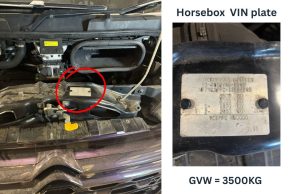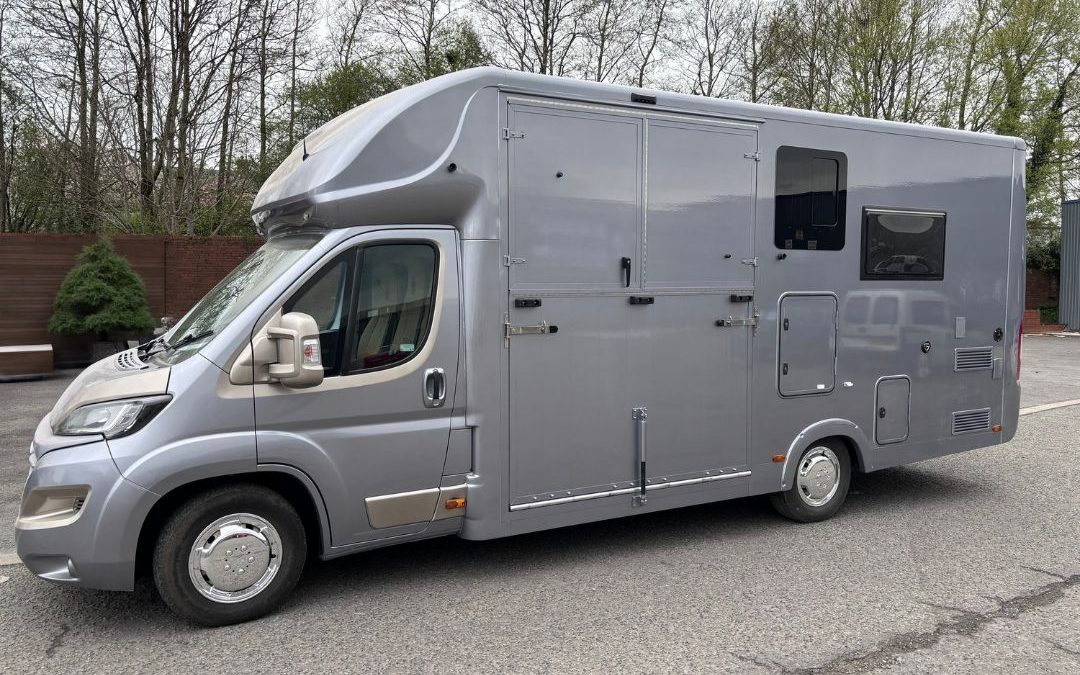Horsebox Payloads – what every UK horse rider needs to know!
When you’re loading up the horsebox for a show, clinic, or weekend ride, the last thing on your mind might be your vehicle’s payload.
But here’s the truth: many UK equestrians are unknowingly breaking the law — and putting themselves, their horses and other road users at risk — by overloading their horseboxes.
This Chaigley Guide will help you understand what payload means, why it matters, and how to stay safe and legal every time you take to the road.
=================================================
What Is Payload and Why Should You Care?
Payload is the maximum amount of weight your horsebox can legally carry, including:
- Horses
- Passengers
- Tack and equipment
- Fuel, water, feed, hay, buckets — everything on board
To understand your payload, you need to know two key terms:
• Gross Vehicle Weight (GVW): The maximum legal weight your horsebox can weigh when fully loaded.
• Unladen Weight (Kerb Weight): The weight of the horsebox itself when empty — including fuel, oil, and necessary fluids, but excluding passengers or cargo.
If you are unsure or need confirmation of your Unladen Weight, we suggest you visit your local Public Weighbridge. You can find where these are by checking your local council website or this is a list we found on UK Public Weighbridges
Note: GVW can also be called Maximum Authorised (MAM). They are the same thing.
The GVW will be listed in the owner’s manual and is normally shown on a plate or sticker fitted to the horsebox.
Payload Calculation
The horsebox payload is calculated like this:
Payload = GVW – Unladen Weight
For example, If your 3.5 tonne horsebox has a GVW of 3,500kg and an unladen weight of 2,900kg, you only have 600kg of payload.

That’s often not enough for even one average-sized horse plus rider and gear.
What adds Weight to a Horsebox?
It’s easy to underestimate how quickly your payload gets used up.
Here’s a rough breakdown:
Item Appox. Weight
Average Horse (15 to 16 hh) 500 to 600 kg
Tack (saddle, bridle etc.) 40 to 60 kg
Full Water Tank 50 to 100 kg
Rider and Passenger 120 to 160 kg
Haynets, Buckets and Feed 20 to 50 kg
Grooming Kits, Rugs and Boots 20 to 30 kg
As you can see, the 600 kg quickly disappears. Making many smaller horseboxes overwight before they have even left the yard.
The Risk of Overloading
Overloading your horsebox isn’t just a minor technicality — it can have serious consequences:
![]() Legal Risks
Legal Risks
- Fines and penalty points from roadside checks (which are on the increase across the UK)
- Vehicle may be impounded or prevented from continuing the journey
![]() Insurance Risks
Insurance Risks
- Many policies are void if the vehicle is found to be overloaded at the time of an incident
![]() Safety Risks
Safety Risks
- Longer stopping distances
- Poor handling and braking
- Strain on tyres, suspension, and chassis
- Increased risk of breakdown or accident
![]() Shows
Shows
- Being turned away or reported if caught
How to Stay Within the Legal Limit
Here are some practical ways to reduce weight and stay compliant:
• Only travel with essential tack and feed
• Drain your water tank before travel (leave just enough to water the horses)
• Know your horse’s approximate weight (weighbridges or vet records can help)
• Consider upgrading to a 4.5t or 7.5t vehicle if your current setup isn’t sufficient
• Keep weighbridge receipts or certificates in your glovebox as proof
Final Thought: Know Your Numbers, Protect Your Horse
Payload confusion is incredibly common, but the good news is it’s easy to fix with the right knowledge. Whether you’re a seasoned competitor or a leisure rider, knowing your horsebox limits helps you stay safe, avoid penalties, and travel with peace of mind.
Knowledge = Safety + Confidence
Horsebox Advice
If you need any help or advice from the Chaigley Team

Chaigley horseboxes
Unit 1 Deveron Mill, Meadow Street, Great Harwood, Lancashire BB6 7EJ
Opening Hours
M-F: 8am – 6pm
chaigleyhorseboxes@gmail.com
Phone
07977 334928 or 07974 184934

